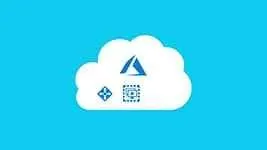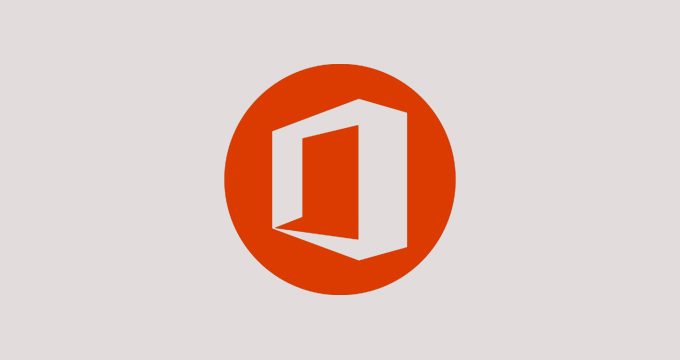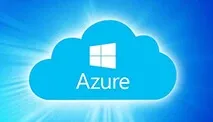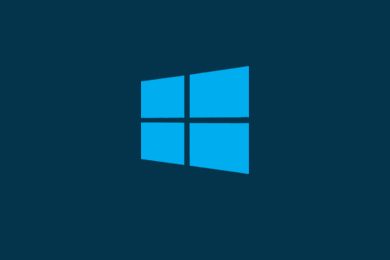This plan includes
- Limited free courses access
- Play & Pause Course Videos
- Video Recorded Lectures
- Learn on Mobile/PC/Tablet
- Quizzes and Real Projects
- Lifetime Course Certificate
- Email & Chat Support
What you'll learn?
- Through this course you shall also gain the knowledge to take Microsoft Azure Administrator: AZ-103/AZ-104, Microsoft Azure Architect Technologies: AZ-300/AZ-303.
Course Overview
This course will give you the essential knowledge required to become a subject matter expertise in implementing, managing, and monitoring an organization’s Microsoft Azure environment. Responsibilities for an Azure Administrator include implementing, managing, and monitoring identity, governance, storage, compute, and virtual networks in a cloud environment, plus provision, size, monitor, and adjust resources, when needed. An Azure Administrator often serves as part of a larger team dedicated to implementing your organization's cloud infrastructure.
Through this course you shall also gain the knowledge to take Microsoft Azure Administrator: AZ-103/AZ-104, Microsoft Azure Architect Technologies: AZ-300/AZ-303.
Learners will gain depth knowledge with hands-on in the below concepts:
Cloud Computing Introduction:
Azure global infrastructure
Azure Account and Subscription
Create Azure Account and Subscription
Create Azure Account and Subscription-English
Core Services of Azure IaaS
Implement virtual networking:
Azure Networking Services Overview
Connectivity services-Part1
Create VNet
Connectivity services Part-2
Application Protection Services
Create Network Security Group
Application Delivery Services
Network Monitoring services
Implement storage accounts:
Storage Account Overview
Create Storage Account
Implement VMs for Windows and Linux:
Azure Virtual Machines
Virtual Machine series
Create Windows Virtual Machine
Connect and Explore Windows Virtual Machine
Configure Windows Virtual Machine as a Webserver
Create Linux Virtual Machine
Connect and Explore Linux Virtual Machine
Configure Linux Virtual Machine as Webserver
Delete Resource Group
Configure Static IP for VM
Changing Size of VM
Reset Windows VM Admin Password
Reset Remote Desktop Setting of Windows VM
Working on Serial Console of Windows VM
Automate deployment and configuration of resources:
Azure PowerShell
Create Windows VM Azure PowerShell
Azure Resource Manager
Create-Download ARM Template
Edit ARM Template
Deploy Resources Using ARM Template
Deploy Linux VM Using ARM Template
Implement cloud infrastructure monitoring:
Configure Diagnostic Settings on Azure Resources
Create Alerts
Create Alert Rule Action
Create Metrics
Log Analytics Workspace
Implement storage accounts - Part2:
Azure Blob Storage
Create Containers in Storage Account
Add Data Disk to VM
Detach Data Disk from VM
Add Data Disk to VM with Managed-Disk
Upload On-Premises VHD to Azure Storage Account
Create File Shares
Connect/Access File Shares
Configure Shared Access Signature
Access Storage Account Using Storage Explorer
Azure AD Authentication for Storage
Log Analytics for Storage
Implement virtual networking - Part2:
Route Table
Create Route Table
Add Route to Route Table
Associate Route Table to a Subnet
Configure IP Forwarding in NVA
Test Routing
Application Security Group
Virtual Network Peering
Create Virtual Network Peering
Create Global Virtual Network Peering
Create VNet-to-VNet Connectivity Using Virtual Network Gateway - Part1
Create VNet-to-VNet Connectivity Using Virtual Network Gateway – Part2
Implement Azure Active Directory
Azure Active Directory Overview
Create Custom Domain in Azure Active Directory
Create Users and Groups in Azure Active Directory
Login as Azure AD user in Azure User Access Panel Portal
Configure Enterprise Applications For Azure AD User
Multi-Factor Authentication
Configure Multifactor Authentication
Configure Azure Multi-Factor Authentication settings
Configure Azure AD Premium License
Configure Self-Service Password Reset (SSPR)
Azure Active Directory Identity Protection
Azure Active Directory Identity Protection - Security overview
Azure Active Directory Identity Protection - Demo
Azure AD Conditional Access policies
Azure AD Conditional Access policies - Demo
Azure Active Directory (Azure AD) Identity Governance
Manage guest access with Azure AD access reviews
Azure AD Identity Governance - Review Access - Demo
Implement and manage hybrid identities:
Hybrid Identity with Azure Active Directory
Install and Configure Azure AD Connect-Demo
Configure and Manage Password Sync and Password Writeback
Azure AD Connect Health
Azure Backup and Restore:
Azure Backup Service
Cerate Recovery Service Vault
Configure Backup for Azure Workloads
Configure Backup for Azure File Shares
Configure Backup for On-Premises Workloads
Install and Register MARS Agent on On-Premises Workload
Backup and Restore On-Premises Workload using MARS Agent
Implement an Azure Application Infrastructure:
Azure App Service
Create Azure App Service
Configure FTP Deployment User And Upload App Service Content
Configure Custom Domain Name for App Service
Configure Scaling for App Service
Configure Deployment Slots for App Service
Pre-requisites
- Candidates with Beginner level to advanced experience and knowledge of IT operations, including networking, virtualization, identity, security, business continuity, disaster recovery, data platform, budgeting, and governance. This role requires managing how decisions in each area affects an overall solution.
Target Audience
- Any one who wants to master in Azure Cloud, Candidates with Beginner level to advanced experience and knowledge of IT operations, including networking, virtualization, identity, security, business continuity, disaster recovery, data platform, budgeting, and governance.
Curriculum 104 Lectures 05:24:34
Section 1 : Cloud Computing Introduction
- Lecture 2 :
- Azure global infrastructure
- Lecture 3 :
- Azure Account and Subscription
- Lecture 4 :
- Create Azure Account and Subscription
- Lecture 5 :
- Core Services of Azure IaaS
Section 2 : Implement virtual networking - Part1
- Lecture 1 :
- Azure Networking Services Overview
- Lecture 2 :
- Connectivity services-Part1
- Lecture 3 :
- Create VNet
- Lecture 4 :
- Connectivity services Part-2
- Lecture 5 :
- Application Protection Services
- Lecture 6 :
- Create Network Security Group
- Lecture 7 :
- Application Delivery Services
- Lecture 8 :
- Network Monitoring services
Section 3 : Implement storage accounts - Part1
- Lecture 1 :
- Storage Account Overview
- Lecture 2 :
- Create Storage Account
Section 4 : Implement VMs for Windows and Linux
- Lecture 1 :
- Azure Virtual Machines
- Lecture 2 :
- Virtual Machine series
- Lecture 3 :
- Create Windows Virtual Machine
- Lecture 4 :
- Connect and Explore Windows Virtual Machine
- Lecture 5 :
- Configure Windows Virtual Machine as a Webserver
- Lecture 6 :
- Create Linux Virtual Machine
- Lecture 7 :
- Connect and Explore Linux Virtual Machine
- Lecture 8 :
- Configure Linux Virtual Machine as Webserver
- Lecture 9 :
- Delete Resource Group
- Lecture 10 :
- Configure Static IP for VM
- Lecture 11 :
- Changing Size of VM
- Lecture 12 :
- Reset Windows VM Admin Password
- Lecture 13 :
- Reset Remote Desktop Setting of Windows VM
- Lecture 14 :
- Working on Serial Console of Windows VM
Section 5 : Automate deployment and configuration of resources
- Lecture 1 :
- Azure PowerShell
- Lecture 2 :
- Create Windows VM Azure PowerShell
- Lecture 3 :
- Azure Resource Manager
- Lecture 4 :
- Create-Download ARM Template
- Lecture 5 :
- Edit ARM Template
- Lecture 6 :
- Deploy Resources Using ARM Template
- Lecture 7 :
- Deploy Linux VM Using ARM Template
- Lecture 8 :
- ARM Powershell Script
Section 6 : Implement cloud infrastructure monitoring
- Lecture 1 :
- Configure Diagnostic Settings on Azure Resources
- Lecture 2 :
- Create Alerts
- Lecture 3 :
- Create Alert Rule Action
- Lecture 4 :
- Create Metrics
- Lecture 5 :
- Log Analytics Workspace
Section 7 : Implement storage accounts - Part2
- Lecture 1 :
- Azure Blob Storage
- Lecture 2 :
- Create Containers in Storage Account
- Lecture 3 :
- Add Data Disk to VM
- Lecture 4 :
- Detach Data Disk the VM
- Lecture 5 :
- Upload On-Premises VHD to Azure Storage Account
- Lecture 6 :
- Create File Shares
- Lecture 7 :
- Configure Shared Access Signature
- Lecture 8 :
- Access Storage Account Using Storage Explorer
- Lecture 9 :
- Azure AD Authentication for Storage
- Lecture 10 :
- Log Analytics for Storage
Section 8 : Availability Sets
- Lecture 1 :
- Availability Set Overview
- Lecture 2 :
- Create Availability Set
- Lecture 3 :
- Create VMs in Availability Set
Section 9 : Load Balancer
- Lecture 1 :
- Azure Load Balancer Overview
- Lecture 2 :
- Configure VMs as Webserver for Azure Load Balancer
- Lecture 3 :
- Create Azure Load Balancer
- Lecture 4 :
- Configure Backend Pool
- Lecture 5 :
- Configure Health Probe
- Lecture 6 :
- Configure Load Balancer Rule
Section 10 : Implement virtual networking - Part2
- Lecture 1 :
- Route Table
- Lecture 2 :
- Application Security Group
- Lecture 3 :
- Virtual Network Peering
- Lecture 4 :
- Create Virtual Network Peering
- Lecture 5 :
- Create Global Virtual Network Peering
- Lecture 6 :
- Create VNet-toVNet Connectivity - Part1
- Lecture 7 :
- Create VNet-toVNet Connectivity - Part2
Section 11 : Implement Azure Active Directory
- Lecture 1 :
- Azure Active Directory
- Lecture 2 :
- Create Custom Domain in Azure Active Directory
- Lecture 3 :
- Create Users and Groups in Azure Active Directory
- Lecture 4 :
- Configure Enterprise Applications For Azure AD User
- Lecture 5 :
- Multi-Factor Authentication
- Lecture 6 :
- Configure Multifactor Authentication
- Lecture 7 :
- Configure Azure Multifactor Authentication settings
- Lecture 8 :
- Configure Azure AD Premium License
- Lecture 9 :
- Configure Self-Service Password Reset (SSPR)
- Lecture 10 :
- Azure Active Directory Identity Protection
- Lecture 11 :
- Azure Active Directory Identity Protection - Security overview
- Lecture 12 :
- Azure Active Directory Identity Protection - Demo
- Lecture 13 :
- Azure AD Conditional Access policies
- Lecture 14 :
- Azure AD Conditional Access policies - Demo
- Lecture 15 :
- Azure Active Directory (Azure AD) Identity Governance
- Lecture 16 :
- Manage guest access with Azure AD access reviews
- Lecture 17 :
- Azure AD Identity Governance - Review Access - Demo
Section 12 : Implement and manage hybrid identities
- Lecture 1 :
- Hybrid Identity with Azure Active Directory
- Lecture 2 :
- Hybrid Identity with Azure Active Directory-Demo
- Lecture 3 :
- Install and Configure Azure AD Connect-Demo
- Lecture 4 :
- Configure and Manage Password Sync and Password Writeback
- Lecture 5 :
- Azure AD Connect Health
Section 13 : Azure Backup and Restore
- Lecture 1 :
- Azure Backup Service
- Lecture 2 :
- Cerate Recovery Service Vault
- Lecture 3 :
- Configure Backup for Azure Workloads
- Lecture 4 :
- Configure Backup for Azure File Shares
- Lecture 5 :
- Configure Backup for On-Premises Workloads
- Lecture 6 :
- Install and Register MARS Agent on On-Premises Workload
- Lecture 7 :
- Backup and Restore On-Premises Workload using MARS Agent
Section 14 : Implement an Azure Application Infrastructure
- Lecture 1 :
- Azure App Service
- Lecture 2 :
- Create Azure App Service
- Lecture 3 :
- Configure FTP Deployment User And Upload App Service Content
- Lecture 4 :
- Configure Custom Domain Name for App Service
- Lecture 5 :
- Configure Scaling for App Service
- Lecture 6 :
- Configure Deployment Slots for App Service
Section 15 : Migrate workloads using Azure Migrate
- Lecture 1 :
- Azure Migrate
Our learners work at
Frequently Asked Questions
How do i access the course after purchase?
It's simple. When you sign up, you'll immediately have unlimited viewing of thousands of expert courses, paths to guide your learning, tools to measure your skills and hands-on resources like exercise files. There’s no limit on what you can learn and you can cancel at any time.Are these video based online self-learning courses?
Yes. All of the courses comes with online video based lectures created by certified instructors. Instructors have crafted these courses with a blend of high quality interactive videos, lectures, quizzes & real world projects to give you an indepth knowledge about the topic.Can i play & pause the course as per my convenience?
Yes absolutely & thats one of the advantage of self-paced courses. You can anytime pause or resume the course & come back & forth from one lecture to another lecture, play the videos mulitple times & so on.How do i contact the instructor for any doubts or questions?
Most of these courses have general questions & answers already covered within the course lectures. However, if you need any further help from the instructor, you can use the inbuilt Chat with Instructor option to send a message to an instructor & they will reply you within 24 hours. You can ask as many questions as you want.Do i need a pc to access the course or can i do it on mobile & tablet as well?
Brilliant question? Isn't it? You can access the courses on any device like PC, Mobile, Tablet & even on a smart tv. For mobile & a tablet you can download the Learnfly android or an iOS app. If mobile app is not available in your country, you can access the course directly by visting our website, its fully mobile friendly.Do i get any certificate for the courses?
Yes. Once you complete any course on our platform along with provided assessments by the instructor, you will be eligble to get certificate of course completion.
For how long can i access my course on the platform?
You require an active subscription to access courses on our platform. If your subscription is active, you can access any course on our platform with no restrictions.Is there any free trial?
Currently, we do not offer any free trial.Can i cancel anytime?
Yes, you can cancel your subscription at any time. Your subscription will auto-renew until you cancel, but why would you want to?
Instructor

215469 Course Views
9 Courses



 Tech & IT
Tech & IT
 Business
Business
 Coding & Developer
Coding & Developer
 Finance & Accounting
Finance & Accounting
 Academics
Academics
 Office Applications
Office Applications
 Art & Design
Art & Design
 Marketing
Marketing
 Health & Wellness
Health & Wellness
 Sounds & Music
Sounds & Music
 Lifestyle
Lifestyle
 Photography
Photography























